Breathe
 for mature thematic material including some bloody medical images.
for mature thematic material including some bloody medical images.
Reviewed by: Raphael Vera
CONTRIBUTOR
| Moral Rating: | Average—but not recommended |
| Moviemaking Quality: |
|
| Primary Audience: | Adults |
| Genre: | Biography Romance Drama |
| Length: | 1 hr. 58 min. |
| Year of Release: | 2017 |
| USA Release: |
October 7, 2017 (festival) October 13, 2017 (4 select theaters) October 20, 2018 (wide—315 theaters) DVD: January 2, 2018 |




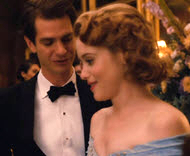

The preciousness of life

The sinfulness of treating the severely disabled callously and without dignity, empathy and mercy.
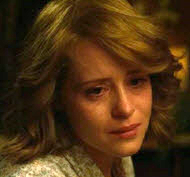
TRUE LOVE—What is true love and how do you know when you have found it? Answer
What is Christian LOVE? Answer
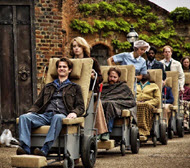
What are GOOD WORKS? Answer
What is GOODNESS? Answer
Did God make the world the way it is now? What kind of world would you create? Answer
Why does God allow innocent people to suffer? Answer
What about the issue of suffering? Doesn’t this prove that there is no God and that we are on our own? Answer
Does God feel our pain? Answer
ORIGIN OF BAD—How did bad things come about? Answer
DEPRESSION—Are there biblical examples of depression and how to deal with it? Answer
What should a Christian do if overwhelmed with depression? Answer
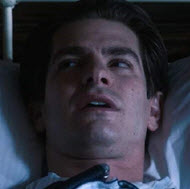
How can we know there’s a God? Answer
What if the cosmos is all that there is? Answer
How to witness to atheists
What is GOD’S PROVIDENCE? Answer
What is the SOVEREIGNTY OF GOD? Answer
What is HUMILITY? and WHY is it important to be humble? Answer
SUICIDE—What does the Bible say? Answer
If a CHRISTIAN commits suicide, will they go to Heaven or Hell? Answer
| Featuring |
|---|
|
Andrew Garfield … Robin Cavendish Claire Foy … Diana Cavendish Hugh Bonneville … Teddy Hall Ed Speleers (Edward Speleers) … Colin Campbell Tom Hollander … Bloggs Blacker / David Blacker Diana Rigg … Lady Neville Jonathan Hyde … Dr. Entwistle David Butler … Estate Manager Ben Lloyd-Hughes … Dr. Don McQueen Miranda Raison … Mary Dawney Camilla Rutherford … Katherine Robertson Andre Jacobs … Governor Terry Norton … Governor's Wife See all » |
| Director |
|
Andy Serkis |
| Producer |
|
Jonathan Cavendish Imaginarium Productions |
| Distributor |
| Bleecker Street Media |
“With her love he lived”
Englishman Robin Cavendish (Andrew Garfield) is playing cricket one day when he notices a young lady named Diana (Claire Foy) from across the field, and she, as it happens, also notices him. Without much fanfare or explanation their love blossoms and soon she is justifying to bewildered friends her desire to both marry him and move to Africa to be alongside him in his tea import business.
Kenya in 1959 is nothing but majestic and beautiful to the young couple in love, however this idyllic chapter in their lives is brought to an abrupt close when Robin suddenly takes ill and comes close to death. Stricken with polio, he rapidly loses the ability to move anything from the neck down, and must now depend upon a respirator to even breathe. While convalescing, Diana reveals that she is pregnant, and, although the Doctors advise against traveling, she brings Robin home to England once the baby is born.
Wishing to make her husband as happy as he can possibly be under the circumstances, she soon engineers a jailbreak of sorts from the depressing hospital ward where he is confined in order to survive. Home at last, she begins to make a life for him, and, with the help of an inventive friend named Teddy who builds him a mobile respirator, it is a life no longer confined to his bed.
“Breathe” is at times an inspirational film about how one wife’s fierce determination to love her husband gives him the will to live and love and even thrive, as he actively seeks to overcome his situation and then share his mobility with others less fortunate. However, underneath the film’s umbrella of hope and perseverance, the darknessborn in his despair is ever present—as is his recurring doubt about whether living this kind of life is worth living at all.
Objectionable Content
Language: Moderate. The Lord’s name is taken in vain 11 times (G*d 8x, OMG 3x), but, on the positive side, “Thank God” is said twice. Inappropriate and crude words are thankfully very sparse, but the following are said one time each: sh*tt*, “h*ll,” “idiot” and “stupid.” Robin jests about “affairs,” he could have had, and, in a serious moment, gives permission to Diana to have “fun” on the side. She refuses.
Violence: Minor. Images of Robin being immersed in ice upon the outset of his illness, the incision to open his trachea to insert a breathing tube and several instances of him bleeding profusely from that very same opening represents the extent of the disturbing imagery shown. A priest visits Robin’s bedside, concerned about his soul, and when he leans down to hear him receives a harsh rebuke from Robin as he then spits on the poor man. Euthanasia, or killing a patient by his own request, is a subject broached upon and seriously discussed, so please exercise discretion with young impressionable minds.
Sex/Nudity: Mild. Robin and Diana are seen kissing and holding each other during the courtship phase, but nothing untoward is seen. After Robin becomes disabled, there is one scene where Diana is in her negligee and seductively moves astride him to show that she still finds her husband desirable, even if he can do nothing to reciprocate.
Lessons
There are themes that touched upon biblical truths, both in a positive and negative light, that bear discussion, such as doubt about God’s existence, worry, the nature of love, the value of husband and wife relationship, and the power for good that a loving wife can have in a husband’s life.
Belief in God—One of the other patients in Robin’s Ward correctly guesses, “You’re not a believer,” after he sees Robin spit at the priest’s face. Sadly, Robin responds by saying, “God’s a joke.” Although he is going through the most trying time of his life, he is never shown recanting this statement, as Robin Cavendish is an self-avowed atheist and remains so to the bitter end. The Word of God is clear on this.
The fool says in his heart, “There is no God.” —Psalm 14:1
At the height of Robin’s depression he asks why his wife insists on coming back time and time again to see him, to which she replies, “Apparently I love you.” Easily the most endearing character in this drama is his wife Diana, who exhibits true love in all it’s wonderful aspects.
Love is patient and kind; love does not envy or boast; it is not arrogant or rude. It does not insist on its own way; it is not irritable or resentful; it does not rejoice at wrongdoing, but rejoices with the truth. Love bears all things, believes all things, hopes all things, endures all things. —1 Corinthians 13:4-7
A loving wife—Diana wishes to make whatever life Robin now has a more pleasant one than the somber hospital ward he was first brought to, and she readily accepts her new responsibility as his caregiver, even buying a cottage for them to live in. Whatever pampered life she may have led in the past has now been replaced by the loyal and dedicated woman she has become in light of Robin’s illness, thus exemplifying the Proverbs model for wives.
An excellent wife who can find?
She is far more precious than jewels.
The heart of her husband trusts in her, and he will have no lack of gain.
She does him good, and not harm,
all the days of her life…
Strength and honour are her clothing; and she shall rejoice in time to come.
She openeth her mouth with wisdom; and in her tongue is the law of kindness. —Proverbs 31:10-31
Worry—While comforting a friend over a divorce, Robin advises him to not worry about what lies ahead, but instead to look towards “new dawns.” Robin is showing how Diana’s optimistic spirit has changed him, while inadvertently reminding us of the words of our Lord and teacher, Jesus Christ.
Therefore do not be anxious about tomorrow, for tomorrow will be anxious for itself. Sufficient for the day is its own trouble.” —Matthew 6:34
In Robin’s most moving admission, he says to a group of doctors, “When I first became paralyzed I wanted to die, but my wife wouldn’t let me. I live because of her, for her. I don’t want to just survive, I want to truly live!” And God, as noted in His Holy Scripture, desires that we put our faith only in Him because that is the only way to live life to the fullest!
All who came before me are thieves and robbers [false teachers], but the sheep did not listen to them. I am the door. If anyone enters by me, he will be saved and will go in and out and find pasture… The thief comes only to steal and kill and destroy. I came that they may have life and have it abundantly. —John 10:8-10
The subject of this film, Robin Cavendish, was an Atheist—spitting angry at the God he denied. The greatest tragedy about his life is that he chose to die in that spiritual condition. (He died died at age 64 on August 8, 1994 by assisted suicide, although he probably would have soon died anyway.) It may be that God allowed Robin to be brought low to be humbled and discover what was truly important in life. God mercifully blessed Robin with an unusually loving wife, and allowed Robin extended years to come to repentance and surrender to Him. Yet, Robin refused to do so and died in his sins—forever separating him from the Paradise God graciously offers.
Upon his death, he was faced squarely with the truth—God is absolutely real and so is eternal life and eternal separation from our Creator, for those who reject Him.
Reader, your life on Earth is very, very short. The great bulk of your existence will be spent in Eternity, where we are all headed. Not only did Robin Cavendish reject Jesus Christ, but the Director of this film, Andy Serkis is also an Atheist, and actor Andrew Garfield was raised in a secular home and has partial Jewish ethnicity. His current faith is “Agnostic Pantheism” and occasionally full Atheism. Please pray that both men’s eyes will be opened and their hearts softened to the love of Jesus Christ before it is also too late for them.
“Breathe” is a simple “by-the-book” tale of triumph over tragedy with a few moments that genuinely succeed in tugging at an audience’s heart strings. Actress Claire Foy easily carries the film as the long suffering wife. However, Director Andy Serkis commits to tell the entirety of Robin’s story, and, in doing so misses the mark to end the film with a rousing conclusion. Instead, “Breathe” doggedly soldiers on to re-open the debate of “dying with dignity” making the inevitable finale a cheerless and Godless one—and, given both Robin’s and the director’s shared atheism, this should come as no surprise. Not recommended.
- Violence: Minor
- Profane language: Moderate
- Vulgar/Crude language: Minor
- Nudity: Mild
- Sex: Mild
See list of Relevant Issues—questions-and-answers.


Moral rating: Extremely Offensive / Moviemaking quality: 5
PLEASE share your observations and insights to be posted here.
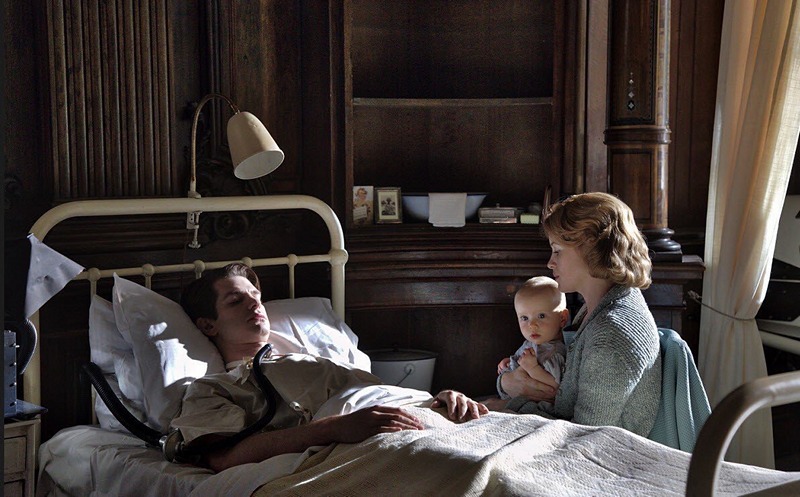




My Ratings: Moral rating: Extremely Offensive / Moviemaking quality: 4½